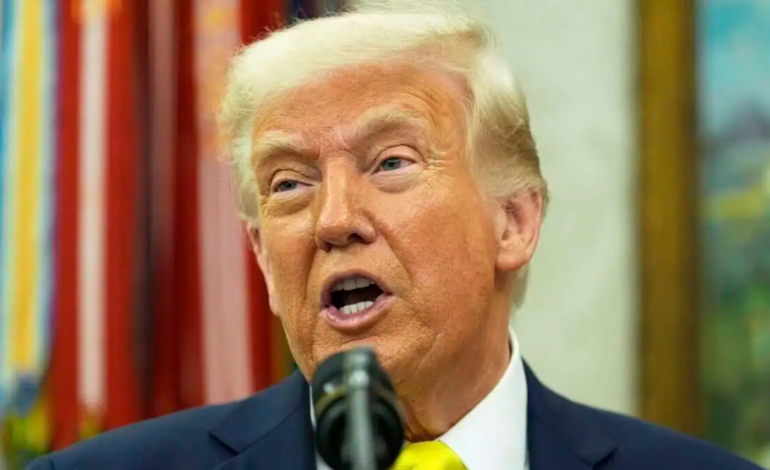
South Korean firms struggle with uncertainties from Trump’s trade policy
In his first 100 days in office, US President Donald Trump has implemented a series of executive orders and tariffs aimed at reducing the United States’ trade deficit and boosting domestic manufacturing. However, the rapid and unpredictable changes in his policies have left South Korean businesses uncertain, making it difficult for them to make crucial decisions regarding overseas investments and projects.
Trump’s shifting policies, such as imposing country-specific reciprocal tariffs of up to 50% and a 90-day implementation delay, have injected significant uncertainty into global markets, according to Yonhap News Agency. South Korean companies, which are heavily reliant on U.S. exports, now face the challenge of adapting to an increasingly volatile trade environment.
Trump, who began his second term on January 20, initially threatened to impose 25% tariffs on all imports from Mexico and Canada, both of which currently have tariff-free access to the U.S. under the U.S.-Mexico-Canada Agreement (USMCA). However, he later lifted those duties.
In April, Trump announced long-promised reciprocal tariffs on goods from countries with trade surpluses with the United States, along with a 10% baseline duty on imports from all countries. South Korean products were hit with a 25% reciprocal tariff. While certain sectors, such as cars, semiconductors, and pharmaceuticals, were exempt from the reciprocal tariff, they are still subject to other sector-specific duties.
For many South Korean exporters, the inconsistency in U.S. trade policy has created major strategic challenges. To mitigate the potential fallout, several firms have considered relocating production or scaling back output. However, experts warn that such responses have limitations, as predicting future policy changes has become nearly impossible, making long-term planning difficult and costly.
“Companies will seek ways to reduce costs by relocating production facilities or adjusting shipments to the U.S.,” said Cho Seong-dae, head of the trade policy research office at the Korea International Trade Association (KITA). “But since it’s nearly impossible to predict U.S. trade policy, many decisions are effectively on hold. Everyone is waiting to see what Trump will say next.”
When the White House threatened tariffs on Mexican imports, South Korean companies with manufacturing bases in Mexico, such as Kia Corp., Samsung Electronics Co., and LG Electronics Inc., had announced plans to shift production to the U.S. or increase output in other regions. However, these plans were later suspended after tariffs on Mexico were waived, and the country was excluded from the reciprocal tariffs.
Hyundai Motor Group, South Korea’s largest automaker, recently announced a plan to invest $21 billion in the U.S. over the next three years to increase its American production. Despite this move, the company could not fully avoid the sectoral tariffs on imported vehicles. Last year, Hyundai Motor Co. and Kia sold a combined 1.7 million vehicles in the U.S., including 1 million cars manufactured in Korea.
Meanwhile, new trade negotiations between Seoul and Washington began last week, with South Korea seeking exemptions from both the reciprocal and sector-specific tariffs. South Korea proposed a comprehensive “package deal” to address multiple sectors and secure more favorable terms.
Amid these ongoing talks, many South Korean firms have taken a cautious, wait-and-see approach, even as they develop contingency strategies. Samsung Electronics, which operates in various sectors like semiconductors, home appliances, and smartphones, remains confident in navigating the shifting trade landscape due to its global production network.
“The impact of the new reciprocal tariffs is slim, but we are monitoring the situation closely as U.S. trade policies continue to evolve,” said Yong Seok-woo, president and head of Samsung’s visual display business. “With 10 production bases globally, we plan to overcome these challenges through strategic production allocation.”
In the semiconductor industry, where Trump has hinted at a new round of tariffs, South Korean chipmakers remain cautious.
“We can’t do much at this point,” said an official from a major Korean chipmaker. “We need to wait for Trump’s next announcement before discussing our strategy.”
Concerns are also rising about investments already made under the U.S. CHIPS Act.